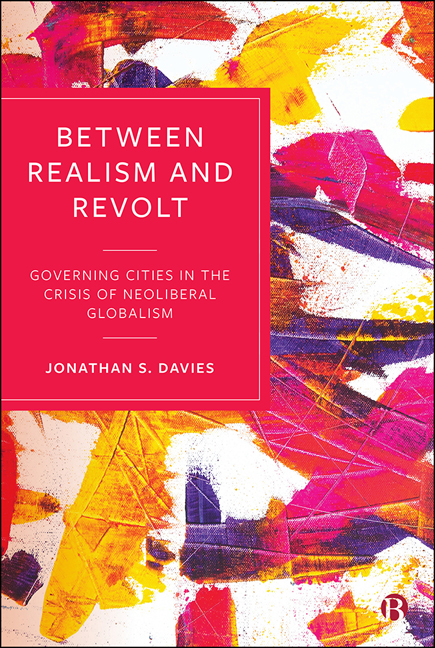Book contents
- Frontmatter
- Dedication
- Contents
- List of Tables
- Contributing Investigators
- Acknowledgements
- Preface
- Introduction
- 1 Studying Urban Political (Dis)Orders
- 2 Dynamics of Crisis, Neoliberalisation and Austerity
- 3 Austerity and State Rescaling
- 4 Consolidating Neoliberal Austerity Regimes
- 5 Regime Divergence and the Limits of Austere Neoliberalism
- 6 Resisting Austerity: Resonant Solidarities and Small Wins
- 7 The ‘Activity of Ruling Groups’: Containment, De-mobilisation and Fragmentation
- 8 Reading the Conjuncture: (Dis)Ordering Dynamics in the Crises of Neoliberal Globalism
- Afterword: Into the Pandemic
- Notes
- References
- Index
6 - Resisting Austerity: Resonant Solidarities and Small Wins
Published online by Cambridge University Press: 05 January 2022
- Frontmatter
- Dedication
- Contents
- List of Tables
- Contributing Investigators
- Acknowledgements
- Preface
- Introduction
- 1 Studying Urban Political (Dis)Orders
- 2 Dynamics of Crisis, Neoliberalisation and Austerity
- 3 Austerity and State Rescaling
- 4 Consolidating Neoliberal Austerity Regimes
- 5 Regime Divergence and the Limits of Austere Neoliberalism
- 6 Resisting Austerity: Resonant Solidarities and Small Wins
- 7 The ‘Activity of Ruling Groups’: Containment, De-mobilisation and Fragmentation
- 8 Reading the Conjuncture: (Dis)Ordering Dynamics in the Crises of Neoliberal Globalism
- Afterword: Into the Pandemic
- Notes
- References
- Index
Summary
Introduction
After this study commenced in 2015, Crouch's (2011) conjunctural question concerning ‘the strange non-death of neoliberalism’, was answered, to a point, by overlapping waves of re-politicisation and reaction. The consideration of urban political (dis)orders problematises three momentous shifts concentrated in, but not limited to, Europe, North and South America: the rise of neo-reactionary forces, with an overtly neo-fascist right, the collapse of austerity-complicit social democratic parties in Europe, and the uneven, tentative, intermittent rise of a heterodox anti-austerity left including prominent anti-capitalist currents. Further episodes of re-normalisation in the previously dominant hegemonic project of neoliberal globalism – what Tariq Ali (2018) dubbed the ‘extreme centre’ – could occur, though even with the election of Joe Biden to the US Presidency, this seemed unlikely at the time of writing. On the contrary, global events continually add weight to May's (2017) suggestion that political time is speeding up, and intervals between acute episodes of instability are diminishing. These eruptions are signs of a Gramscian interregnum, signalling the iterative breakdown of old regimes of hegemony-domination. This uneven process of disordering is contested by passive revolutionary forces to the right and far more tentative and transient forces to the radical left. However, as the discussion of Greater Dandenong in Chapter 5 illustrates, political contagion was not universal. It remains to be seen whether escalating conflicts and geo-political tensions, now exacerbated by COVID-19, will turn repeated political-economic and environmental crises into a poly-crisis of more general and globalised proportions.
Chapters 6 and 7 explore patterns and trajectories of resistance to neoliberal austerity, and its impact on the governance and governability of the eight cities. The objective is two-fold: to consider the extent to which resistance has weakened neoliberal austerity within the state apparatus, or itself been weakened; and to explore the impact of contentious politics in reconstituting civil society as an ‘autonomous’ terrain of anti-neoliberal and potentially counter-hegemonic politics. Whereas Chapter 6 focuses on the productive relationship between resistance and solidarity, Chapter 7 looks at how resistance was muted, contained, disorganised or coopted. As a case of regime transition, many of the issues pertaining to resistance and containment in Barcelona were introduced in Chapter 5.
- Type
- Chapter
- Information
- Between Realism and RevoltGoverning Cities in the Crisis of Neoliberal Globalism, pp. 135 - 154Publisher: Bristol University PressPrint publication year: 2021

